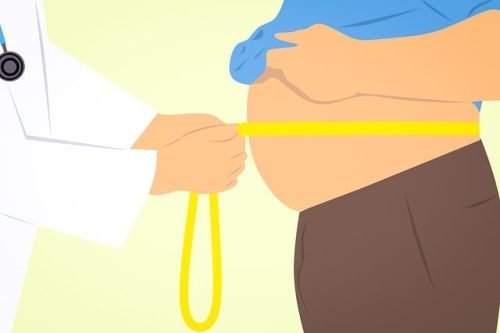What Is The Biggest Problem With Weight Loss?
Losing weight can be a daunting task that many of us have embarked on at some point in our lives. But have you ever wondered what the biggest problem with weight loss is? It’s not about finding the right diet or exercise routine; it’s about staying motivated and consistent. The lack of motivation or the inability to stay on track is what often hinders our weight loss journey. So, if you’ve ever struggled to shed those extra pounds and wondered why it’s so difficult, keep reading to discover the real culprit behind the biggest problem with weight loss.
Lack of Consistency
Difficulty in maintaining a consistent routine
Lack of consistency is one of the major challenges when it comes to successful weight loss. It can be difficult to establish and maintain a consistent routine, especially with the demands of daily life. From work responsibilities to family commitments, finding the time and energy to prioritize your health and stick to a weight loss plan can be challenging.
Lack of motivation to stick to a weight loss plan
Another common hurdle is a lack of motivation. It can be hard to stay motivated and committed to a weight loss plan, especially when progress may be slow or when faced with setbacks. It’s essential to find ways to stay motivated, whether it’s setting achievable goals, finding a support system, or rewarding yourself for your accomplishments.
Inconsistent exercise and diet habits
Inconsistent exercise and diet habits can greatly hinder weight loss efforts. Skipping workouts, indulging in unhealthy food choices, or falling off track with your diet plan can lead to minimal progress or even weight gain. It’s crucial to develop sustainable exercise and dietary habits that can be maintained in the long run. Consistency is key when it comes to achieving and maintaining a healthy weight.
Unrealistic Expectations
Setting unrealistic goals for weight loss
Many individuals set unrealistic goals for weight loss, wanting to achieve quick and dramatic results. While it’s natural to be eager to see progress, it’s important to set realistic and achievable goals. Healthy weight loss is a gradual process, and aiming for sustainable changes rather than quick fixes is essential.
Expecting quick and drastic results
The desire for rapid results can lead to frustration and disappointment. Weight loss takes time and effort, and expecting immediate and drastic results can set you up for failure. It’s important to be patient and understand that slow progress is still progress. Celebrate the small victories along the way and focus on long-term lifestyle changes rather than short-term fixes.
Frustration due to slow progress
Slow progress can be frustrating and demotivating, but it’s crucial to stay focused and not let it derail your weight loss journey. Remember that weight loss is not just about the number on the scale; it’s about improving your overall health and well-being. Keep track of non-scale victories, such as increased energy levels, improved sleep, and enhanced self-confidence.
Emotional Eating
Using food as a coping mechanism for emotional issues
One of the biggest obstacles to weight loss is emotional eating. Many individuals turn to food as a way to cope with emotional issues such as stress, sadness, or boredom. Food provides temporary comfort and distraction, but it doesn’t address the underlying emotions. Understanding the triggers for emotional eating and finding healthier coping mechanisms is crucial for successful weight loss.
Lack of control over cravings and emotional triggers
Cravings and emotional triggers can be powerful, making it challenging to resist the temptation to indulge in unhealthy foods. It’s important to develop strategies to regain control over these urges. This may include finding alternative activities, using relaxation techniques, and seeking support from loved ones or professionals who can help you navigate these challenges.
Difficulty in identifying and addressing emotional eating patterns
Identifying and addressing emotional eating patterns can be a significant challenge. Many individuals struggle to recognize the connection between their emotions and their eating habits. It’s important to increase self-awareness and seek professional guidance if needed to understand and address these patterns effectively. By addressing emotional eating, you can develop a healthier relationship with food and improve your chances of successful weight loss.
Lack of Education
Limited knowledge of nutrition and proper dieting
A lack of education around nutrition and proper dieting is a common barrier to weight loss. Without a solid understanding of the principles of nutrition, it can be challenging to make informed food choices. Learning about macronutrients, portion sizes, and balanced meals is essential for building a healthy eating plan that supports weight loss.
Misinformation and abundance of fad diets
The abundance of misinformation and fad diets in the media can confuse and mislead individuals seeking to lose weight. It’s important to approach weight loss with a critical mind, relying on evidence-based information and seeking guidance from qualified professionals. Avoid falling for quick fixes or restrictive diets that promise rapid results but may ultimately prove unsustainable or unhealthy.
Lack of understanding about the body’s energy balance and metabolism
Understanding the body’s energy balance and metabolism is crucial for successful weight loss. Many people don’t realize that weight loss is essentially a matter of creating a calorie deficit, where you consume fewer calories than you burn. By understanding these basic principles, you can make informed decisions about your diet and exercise routine and tailor them to your specific needs and goals.
Yo-Yo Dieting
Repeated cycles of drastic weight loss and regain
Yo-yo dieting, characterized by repeated cycles of drastic weight loss and regain, can be detrimental to both physical and mental health. This pattern of weight loss and regain can wreak havoc on your metabolism, making it increasingly challenging to achieve sustainable weight loss. It’s important to focus on long-term lifestyle changes rather than quick fixes to break the cycle of yo-yo dieting.
Negative impact on metabolism and body composition
Yo-yo dieting can have a negative impact on your metabolism and body composition. The repetitive pattern of weight loss and regain can slow down your metabolism, making it harder to shed pounds in the future. It can also lead to a loss of muscle mass, which is essential for maintaining a healthy weight. Avoiding yo-yo dieting and focusing on sustainable weight loss methods can help preserve your metabolism and body composition.
Psychological effects of yo-yo dieting
In addition to the physical impact, yo-yo dieting can have significant psychological effects. From feelings of failure and frustration to a negative body image, the emotional toll of yo-yo dieting can be immense. It’s important to prioritize mental well-being throughout your weight loss journey and seek support if necessary. By adopting a balanced and sustainable approach to weight loss, you can break the cycle of yo-yo dieting and improve your overall well-being.
Sedentary Lifestyle
Increased sedentary activities like desk jobs and screen time
The prevalence of sedentary activities, such as desk jobs and excessive screen time, contributes to a sedentary lifestyle. Spending long hours sitting can lead to weight gain and hinder weight loss efforts. It’s important to find ways to incorporate physical activity into your daily routine, whether it’s by taking breaks to stretch, using a standing desk, or scheduling regular exercise sessions.
Lack of physical activity and exercise
A sedentary lifestyle often goes hand in hand with a lack of physical activity and exercise. Regular physical activity is crucial for weight loss, as it helps burn calories and promotes overall health. Finding activities that you enjoy and that fit into your schedule can make exercise more manageable and increase your chances of sticking to a regular fitness routine.
Risk of weight gain due to a sedentary lifestyle
A sedentary lifestyle increases the risk of weight gain and obesity. When you spend most of your time inactive, you burn fewer calories, and it becomes easier to consume more calories than you need. This energy imbalance can lead to weight gain over time. Breaking free from a sedentary lifestyle and incorporating regular movement into your day is essential for successful weight loss.
Lack of Support
Lack of support from family and friends
Having a support system is crucial for successful weight loss, but many people lack the support they need. It can be challenging when those closest to you do not understand or prioritize your weight loss journey. Communicating your goals and needs to your loved ones and seeking their support and understanding can make a significant difference in your motivation and success.
Limited access to professional guidance and counseling
Access to professional guidance and counseling can be limited for many individuals. While it’s ideal to work with a registered dietitian or weight loss specialist, not everyone has the means or resources to do so. However, there are still online resources, support groups, and community programs that can provide guidance and support on your weight loss journey.
Feeling isolated and struggling to find a support system
Feeling isolated and struggling to find a support system can be demoralizing. It’s essential to remember you are not alone in your weight loss journey. Reach out to like-minded individuals through online communities or local support groups. Building relationships with people who share similar goals can provide encouragement, accountability, and valuable insights.
Genetic Factors
Inherited genetic factors that influence weight gain and loss
Genetic factors play a significant role in weight gain and loss. Some individuals may inherit genes that make it easier to gain weight or have a slower metabolism. While you can’t change your genetics, understanding how they influence your weight can help you develop a personalized approach to your weight loss journey.
Genetic predisposition to obesity and related health conditions
Some individuals may have a genetic predisposition to obesity and related health conditions. This means that they might have a higher risk of developing obesity or obesity-related diseases due to their genetic makeup. While genetics can make weight loss more challenging, it doesn’t make it impossible. With the right strategies and support, individuals with genetic predispositions can still achieve and maintain a healthy weight.
Challenges in overcoming genetic barriers to weight loss
Overcoming genetic barriers to weight loss can be challenging. It may require a more tailored approach, involving a combination of specialized nutrition and exercise plans. Working with healthcare professionals who have experience in genetics and weight loss can provide valuable insights and strategies to navigate these hurdles effectively.
Lifestyle Habits
Unhealthy eating habits and food choices
Unhealthy eating habits and food choices contribute to weight gain and hinder weight loss efforts. Consuming excessive amounts of processed and high-calorie foods can lead to weight gain and hinder progress. It’s crucial to focus on adopting healthier eating habits and making conscious food choices that nourish your body and support your weight loss goals.
Excessive consumption of processed and high-calorie foods
The excessive consumption of processed and high-calorie foods is a common lifestyle habit that contributes to weight gain. These foods are often high in added sugars, unhealthy fats, and empty calories. Choosing whole, unprocessed foods and incorporating more fruits, vegetables, lean proteins, and whole grains into your diet can help support weight loss.
Lack of regular exercise and physical activity
A lack of regular exercise and physical activity is another common lifestyle habit that can hinder weight loss. Regular exercise not only helps burn calories but also boosts metabolism, improves cardiovascular health, and enhances overall well-being. It’s important to find activities you enjoy and make them a regular part of your routine to support your weight loss efforts.
Medical Conditions
Underlying medical conditions affecting weight loss
Underlying medical conditions can affect weight loss and make it more challenging. Conditions such as hypothyroidism, polycystic ovary syndrome (PCOS), and insulin resistance can impact metabolism and energy balance. If you suspect a medical condition may be hindering your weight loss efforts, it’s essential to consult with a healthcare professional who can help identify and address these underlying issues.
Hormonal imbalances and metabolic disorders
Hormonal imbalances and metabolic disorders can disrupt the body’s natural processes and affect weight regulation. Hormones such as insulin, cortisol, and thyroid hormones play crucial roles in metabolism and appetite regulation. Imbalances in these hormones can lead to weight gain or make weight loss more difficult. It’s important to work with healthcare professionals who can help diagnose and manage these imbalances to support your weight loss goals.
Medications with weight gain as a side effect
Certain medications can have weight gain as a side effect, making weight loss more challenging. Medications such as antidepressants, antipsychotics, and some hormonal contraceptives are known to have this effect. If you’re taking medications that may contribute to weight gain, it’s important to discuss your concerns with your healthcare provider. They may be able to explore alternative options or help you manage weight gain through lifestyle modifications.
In conclusion, weight loss can be a complex process with various obstacles and challenges. Lack of consistency, unrealistic expectations, emotional eating, lack of education, yo-yo dieting, sedentary lifestyle, lack of support, genetic factors, lifestyle habits, and medical conditions are all factors that can hinder weight loss efforts. However, by addressing these challenges, seeking support, and adopting sustainable lifestyle changes, it is possible to overcome these obstacles and achieve long-term success in reaching and maintaining a healthy weight. Remember, it’s not about quick fixes or drastic measures, but rather about embracing a holistic approach that prioritizes your physical and mental well-being.




